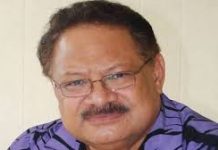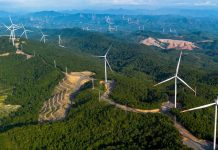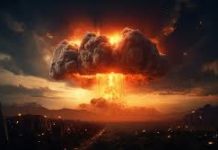Australia considers itself the economic and security guardian of the Pacific region.
But increasingly China has ambitions to further its interests among island nations.
This week, Pat Conroy, Australia’s minister for International Development and the Pacific, who is also the Defense Industry minister, visited East Timor and Nauru.
He said in a statement that his trip was “to further strengthen our deep and longstanding partnerships with two of our closest partners”.
Monday, Conroy pledged $23 million to help policing in East Timor once part of Indonesia before becoming an independent country.
The funding will help the nation’s police respond to natural disasters and tackle organised criminal gangs. Wednesday, the minister attended Nauru’s 2024 Independence Day celebrations and again praised the “deep” bilateral relationship.
Dirk van der Kley is a senior research fellow at the Australian National University’s National Security College.
He told Voice of America (VOA) that Canberra is keen to maintain its influence in the region.
“We are used to being the leading economic and security power within the Pacific region and that is probably still true,” he said. “But with another power coming along, China, which often actually has different interests to what Australia has, it is not surprising that Australia is concerned about that, particularly when you hear talk of, you know, security agreements.”
Earlier this month, Nauru, a small Pacific republic, reestablished formal diplomatic relations with China after severing ties with Taiwan.
The government in Papua New Guinea, Australia’s nearest neighbor, has confirmed it is in talks with China over a potential security and policing deal.
Beijing signed a security pact with Solomon Islands, a strategically located archipelago northeast of Australia, in 2021.
Van der Kley says China has growing ambitions in the Pacific region.
“You are talking about a handful of countries that are spread a long way out from each other with relatively small populations that are relatively poor,” he said.
“China is trying to increase its influence in the region so that it can shape the global order and there are probably three things to this. The first is, of course, Taiwan. So, when we talk about the region this is one of the few regions in the world where you still have countries that recognise Taiwan and not the People’s Republic of China at the U.N. and other international bodies.”
Van der Kley says that island nations in the Pacific can also support China in international forums, including the United Nations, and side with Beijing in its competition with the United States for global influence.
Australia has sought to stabilise ties with China, its biggest trading partner, after the election in May 2022 of a left-leaning government in Canberra.
Relations deteriorated over COVID-19’s origins and various geopolitical and trade disputes.
Australian Prime Minister Anthony Albanese has stressed, however, that the two countries will disagree on certain issues.
Analysts predict that the competition between Beijing and Canberra for influence in the Pacific will intensify.
SOURCE: VOA/PACNEWS














